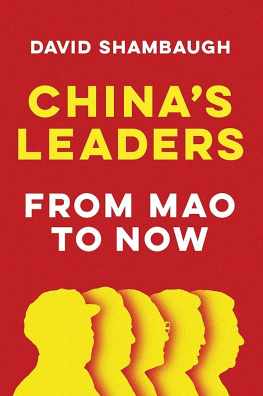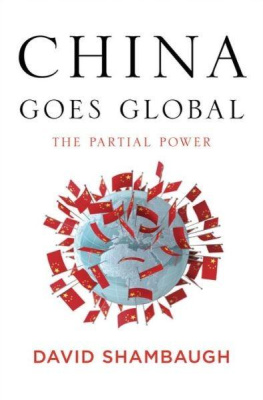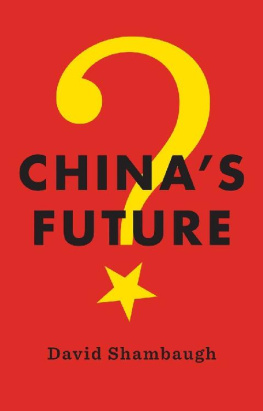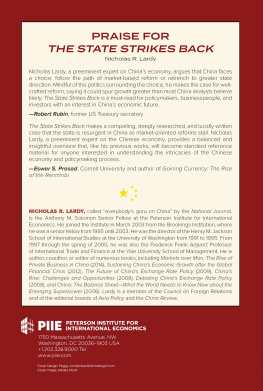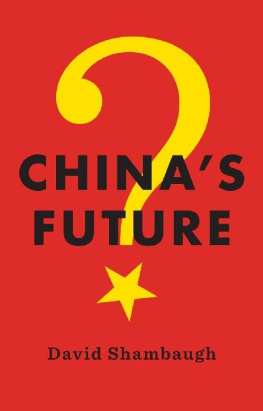An East Gate Book
First published 2000
by M.E. Sharpe
Published 2015
by Routledge
2 Park Square, Milton Park, Abingdon, Oxon OX14 4RN
711 Third Avenue, New York, NY, 10017, USA
Routledge is an imprint of the Taylor & Francis Group, an informa business
Copyright 2000, Taylor & Francis. All rights reserved.
No part of this book may be reprinted or reproduced or utilised in any form or by any electronic, mechanical, or other means, now known or hereafter invented, including photocopying and recording, or in any information storage or retrieval system, without permission in writing from the publishers.
Notices
No responsibility is assumed by the publisher for any injury and/or damage to persons or property as a matter of products liability, negligence or otherwise, or from any use of operation of any methods, products, instructions or ideas contained in the material herein.
Practitioners and researchers must always rely on their own experience and knowledge in evaluating and using any information, methods, compounds, or experiments described herein. In using such information or methods they should be mindful of their own safety and the safety of others, including parties for whom they have a professional responsibility.
Product or corporate names may be trademarks or registered trademarks, and are used only for identification and explanation without intent to infringe.
Library of Congress Cataloging-in-Publication Data
Is China unstable?: assessing the factors / David Shambaugh, editor
p. c.m.(Studies on contemporary China)
Includes bibliographical references and index.
ISBN 0-7656-0572-4 (cloth: alk. paper). ISBN 0-7656-0573-2 (pbk.: alk. paper)
1. ChinaEconomic conditions1976 2. Economic stabilizationChina. 3.
ChinaPolitics and government1976 I. Shambaugh, David L. II. Series.
HC427.92.18 2000
306'.0951'09049dc21
99-050215
CIP
ISBN 13: 9780765605733 (pbk)
ISBN 13: 9780765605726 (hbk)
There is probably no more pertinent question for all who deal with China today than that of China's potential for instability. This is true not only for analysts, but also nations, investors, and traders who have large-scale commitments in the country. If China becomes unstable, it will have significant global implications.
The question of China's instability is, of course, a perennial one, given China's convulsive history of domestic rebellions, territorial fragmentation, warlords, poverty, famine, disease, war, and revolution. In the fifty years of the People's Republic of China, the country has experienced repeated instances of instability-many induced by the Maoist regime and the Chairman himself. Indeed, over the millennia, it is probably fair to say that China has known more instability than stability. Instability can come in a number of sectorseconomically, socially, politicallyand it can arise seemingly suddenly. Like an earthquake, analysts may be able to identify early-warning indicators, but can never predict precisely how and when they will coalesce and erupt.
In an attempt to assess the existing factors that could give rise to instability in China today, The Sigur Center for Asian Studies at George Washington University convened a conference on June 19, 1998. In this effort, the contributors to this volume were joined by leading China specialists from the U.S. government and intelligence community, Washington-area universities and research institutes, foreign embassies, and journalists with extensive experience in China. The conference considered earlier drafts of the revised papers contained in this volume, and engaged in a thorough discussion of the factors contributing to both stability and instability in China today. Neither the conference nor this volume proceeded from a supposition that China was unstableit merely asked the question, defined the potential parameters of instability, and assessed the relevant factors that may give rise to an unstable China.
The contributions to this volume clearly indicate that, at the turn of the millenium, China possesses a large number of unstable factors and elements. But they also point to a number of stabilizing variables, and generally concluded with one participant that, while volatile and becoming more so in the wake of the Asian financial crisis, China today is in a curiously ambivalent state of "stable unrest" that may continue for some time. Numerous "nodes" of instability exist throughout the society, but with little apparent connecting tissue to create a critical mass. At the same time, it was agreed that China today is more unstable than at any time since the height of the Cultural Revolution (1966-1969). Moreover, many of the factors that challenged the Communist party-states in the former Soviet Union and Eastern Europe and contributed to their gradual demise and ultimate overthrow are present in China today. But so too are key factors not previously present in these other countriesnotably a growing economy, extensive trade and investment ties to the outside world, a generally cohesive multiethnic society, a stable political leadership, and strong regime control over the military and internal security services. On balance, these factors were judged to be predominant at present and would buffer the party-state from challenges from below or within. Nonetheless, the contributors to this volume and participants in the conference all agreed that the factors and forces of potential instability in China today are strong and growing, and that no reasonable analyst would be wise to assume indefinite socio-political-economic stability, or continuance of Communist Party rule, in China.
This project owes its origins to discussions I had with several Japanese colleaguesnotably Professors Kokubun Ryosei and Kojima Tomoyuki of Keio University in Tokyo. Unfortunately, due to last-minute difficulties, neither was able to participate in the conference or contribute to the volume, but their intellectual input was significant. I am also most grateful for financial support from the Japan External Trade Research Organization (JETRO) and its affiliated Global Industries and Social Progress Research Institute (GISPRI). The Institute's dynamic late executive director Seiki Katsuo was also instrumental in supporting and shaping this project from the beginning, and it is a great pity he did not live to see its fruition. The volume is accordingly dedicated to his memory. I also wish to thank Dorothy Solinger and Thomas Bernstein for continually urging me to submit this for publication as a book, so that it would have a longer "shelf life" and circulate more widely than the earlier version, which was published as a research report. Finally, thanks are due to Doug Merwin, Asian Studies editor extraordinaire at M.E. Sharpe, for recognizing the potential interest in this volume and publishing it.





